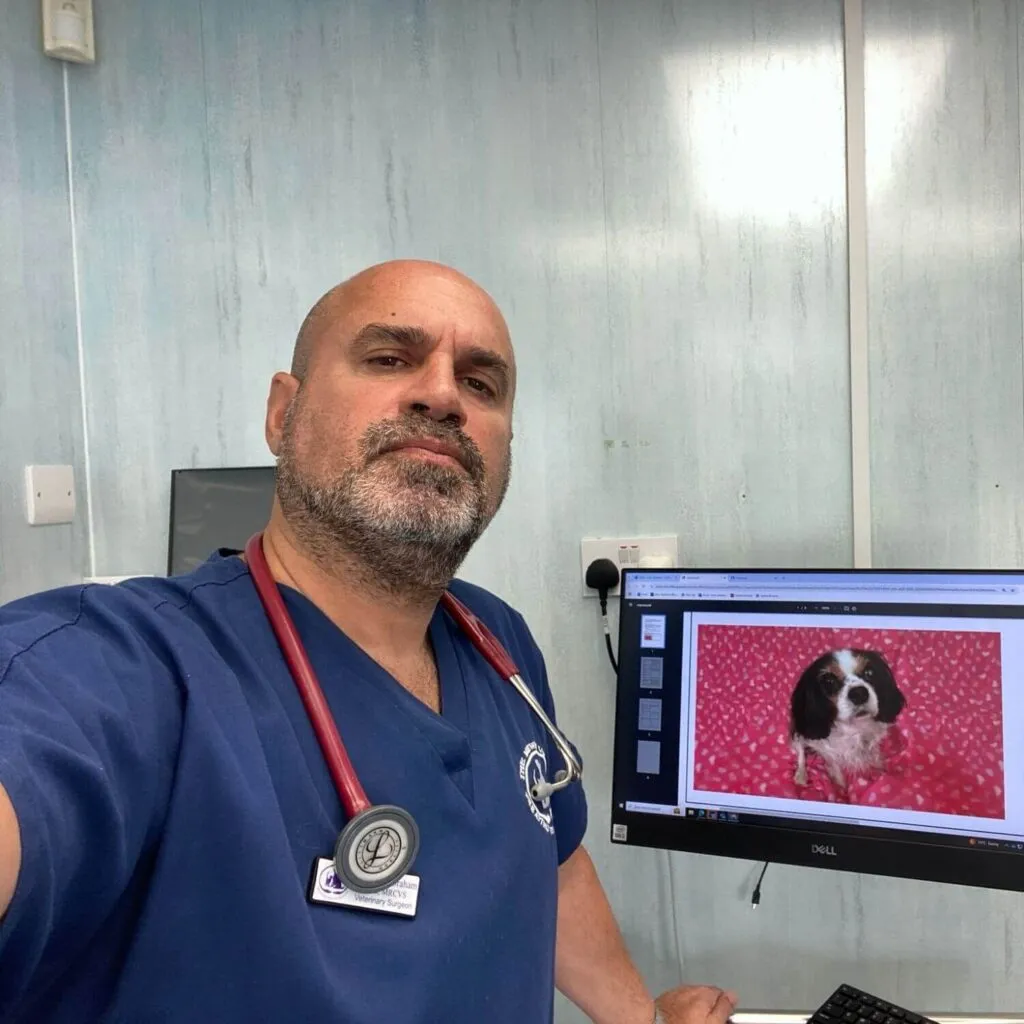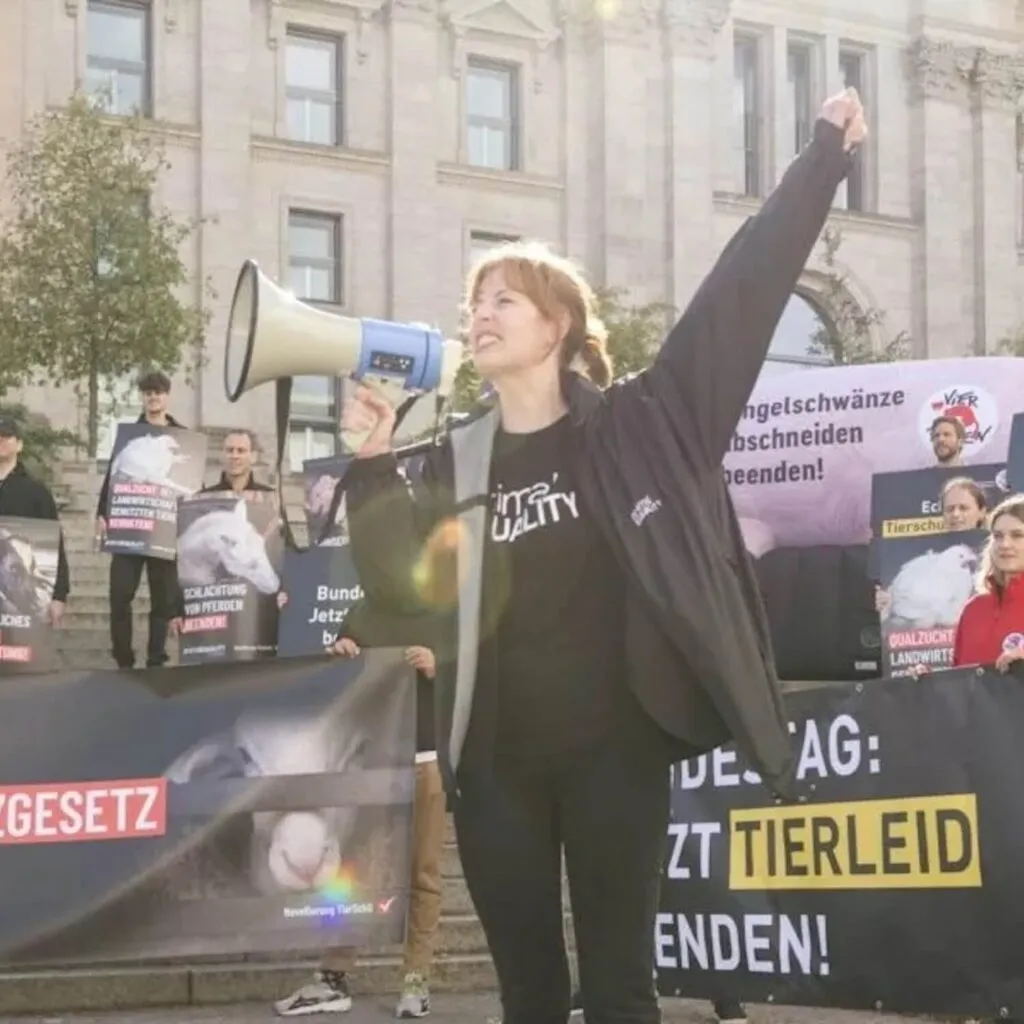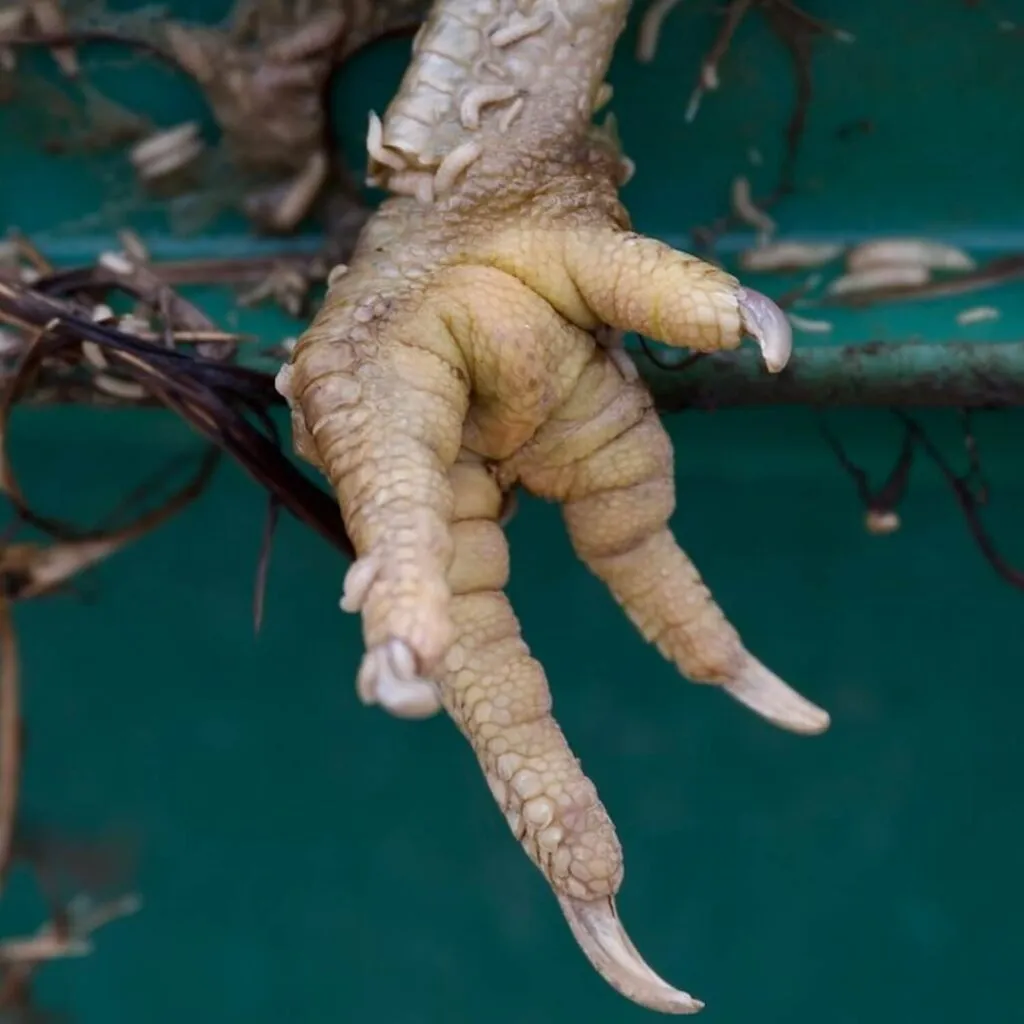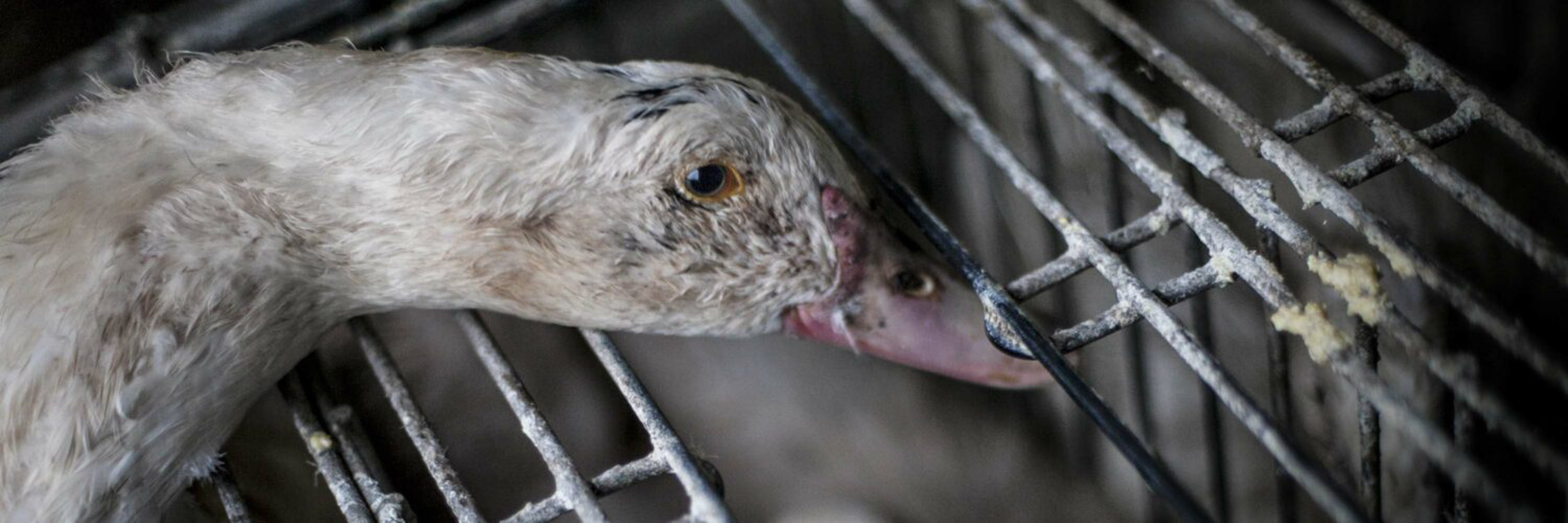
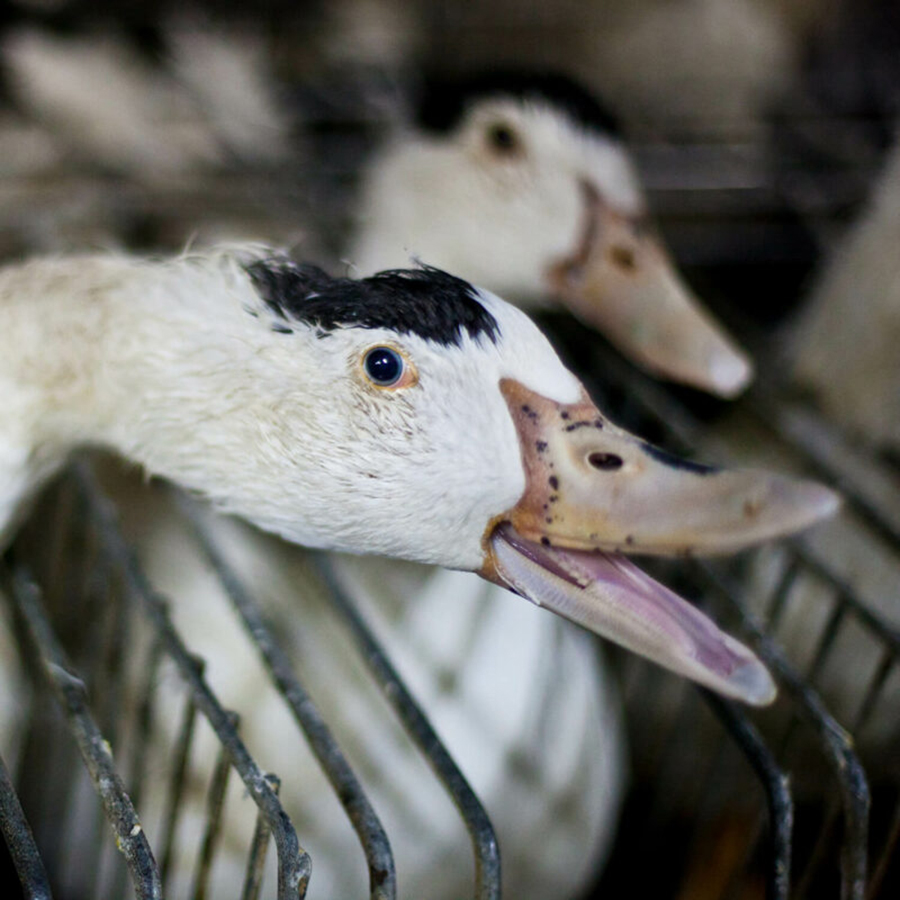
Why Is Foie Gras Still Legal In Europe?
Around 94% of people in the European Union (EU) believe it is important to protect the welfare of animals. At the same time, between 10 million and 70 million ducks and geese are force-fed to produce foie gras in the EU each year, according to estimates.
Force-feeding is widely considered to be one of the most cruel practices still in use in the farming industry.
So why is such a cruel practice still permitted when so many people in the EU want animals to be better protected?
Here are four reasons why:
1. Public Awareness Of Foie Gras Is Low
Foie Gras is considered to be a luxury ‘delicacy’ and it’s eaten by only a small fraction of people, so many people are completely unaware that foie gras exists or that ducks and geese are force-fed to produce it.
If people are unaware of force-feeding, then they cannot oppose it, and public pressure is important when it comes to creating change for animals and making sure existing laws are followed.
This is one of the reasons why Animal Equality has conducted and published investigations into foie gras farms and has started petitions calling for force-feeding to be banned in countries around the world.
By showing more people the reality of foie gras production, we can raise awareness about this issue and inspire more people to support campaigns to ban force-feeding.
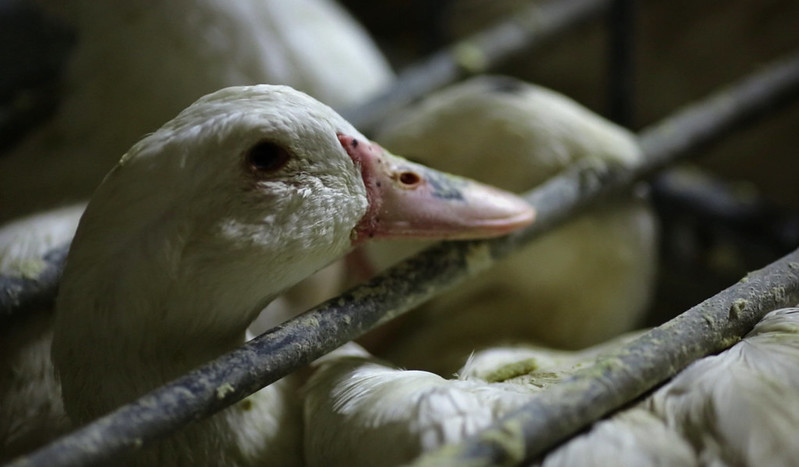
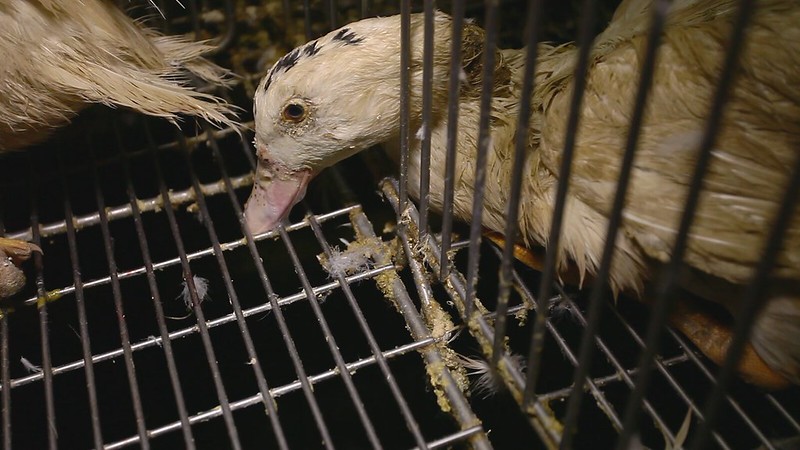
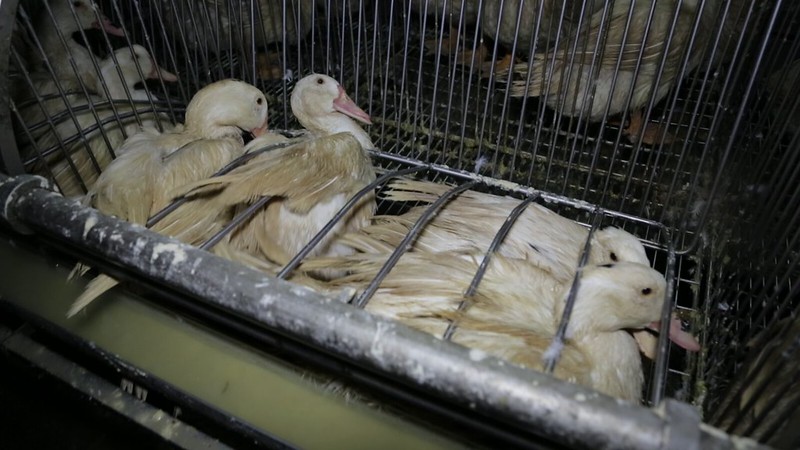
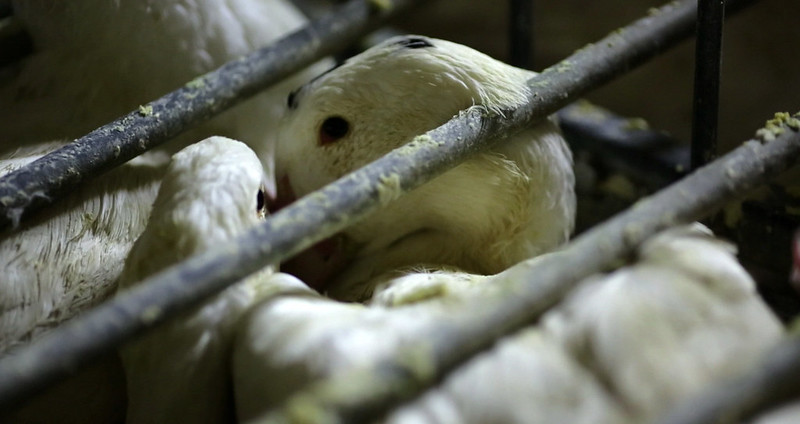
2. The Foie Gras Industry Deceives Consumers
Many people are unaware of foie gras, but those who are aware are fed false and misleading claims about the production of foie gras and how it impacts animals.
One tactic used by the foie gras industry is to suggest that foie gras production is in some way natural. For example, during the force-feeding process, the liver of a duck or goose will swell up, sometimes to as much as ten times the natural size. In response, the industry claims that birds who migrate store fat in their livers for energy before their journeys and that this makes the force-feeding process natural.
It’s true that migratory birds naturally store fat in their liver before their journey, but this is not relevant to the production of foie gras. One of the breeds of ducks that is used most commonly in the foie gras industry is the Mulard duck. Not only is the Mulard duck not a migratory bird; the Mulard duck doesn’t even fly.
Another example is a claim made by members of the foie gras industry that ducks and geese will voluntarily come to be fed. This contradicts a wealth of scientific studies and investigative footage that show that force-fed ducks and geese recognise and show strong rejection towards the person force-feeding them.
The foie gras industry uses these deceptive tactics in an attempt to make the force-feeding process appear normal or natural when it is not.
3. The Foie Gras Industry Finds Ways To Bypass The Law
There are existing EU laws that should make foie gras production illegal.
First, there is the EU-wide law that states animals are sentient beings and that the welfare of animals should be taken into account when it comes to farming.
Second, in 1999, the EU passed a directive which stated “practical experience and scientific knowledge” are important factors when it comes to considering the conditions animals are raised in.
In other words, if there is strong evidence that animals suffer because of farming conditions, then something should be done.
The same directive states:
The animals must receive healthy, age-appropriate and species-appropriate food, which must be made available to them in sufficient quantities to keep them healthy. […] The manner of feeding and watering must not cause unnecessary suffering or harm to the animals.
Directive 98/58/EC on the protection of farm animals, Annex 14
Force-feeding clearly causes immense suffering to animals, so how can foie gras still be produced?
Well, there is another law that the foie gras industry uses to get around it.
This law says that EU member states must take into account “customs […] in particular with regard to religious rites, cultural traditions and regional heritage”.
The foie gras industry argues that foie gras is a cultural tradition relating to regional heritage and therefore should not be banned.
So the law about animal welfare is weighed against the law about cultural traditions and regional heritage, and the foie gras industry and lawmakers decide that animal suffering is less important.
4. EU Law: If A Product Is Legal In One Country, It Must Be Legal In All Others Too
Many EU member states have already banned the production of foie gras because of the cruelty involved. But those countries are not able to stop foie gras from being sold there.
This is because of one of the fundamental rules of the European Union called the ‘principle of mutual recognition’. Put simply, this principle ensures that a product which is legal to sell in one EU member state must be legal to sell in every other member state.
For example, if the production and sale of foie gras is legalised in France, then all EU countries must also allow this product and may not prohibit or hinder it being imported or sold.
With the UK no longer in the EU, there are no legal barriers to a ban being put in place in the UK.
What You Can Do
Animal Equality is campaigning for foie gras and other products produced by force-feeding animals to be banned in countries around the world, including in the UK and EU countries.
If the UK Government bans the importation of foie gras, not only would it damage the foie gras industry, it would also put pressure on other countries to follow the UK’s decision, including in the EU.
Support our foie gras ban campaign in the UK by signing our petition.
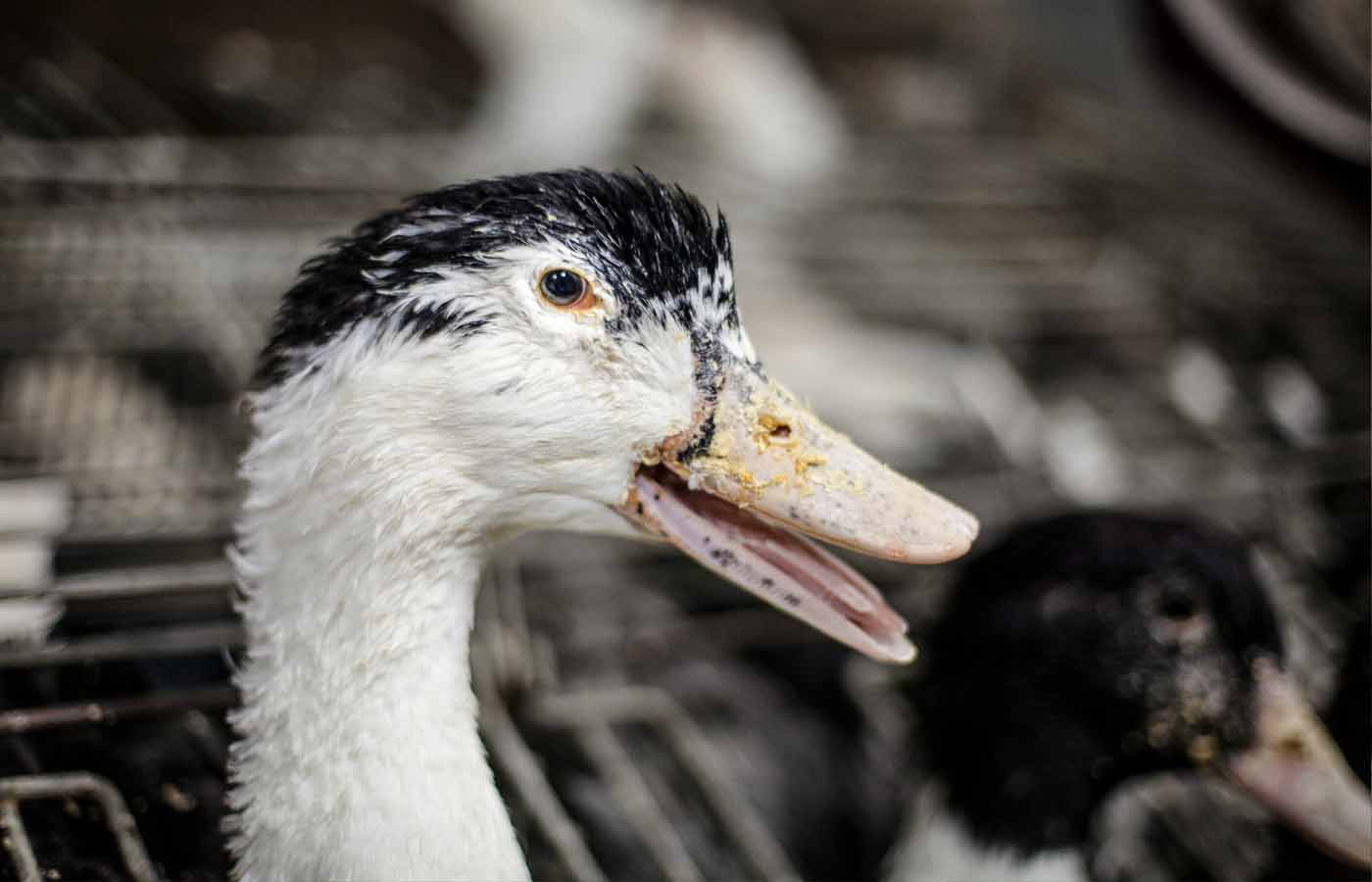
END THE CRUELTY
Foie gras is immensely cruel. Its production causes ducks and geese severe physical and psychological pain. You can protect ducks and geese by opting for plant-based alternatives.
Recommended
